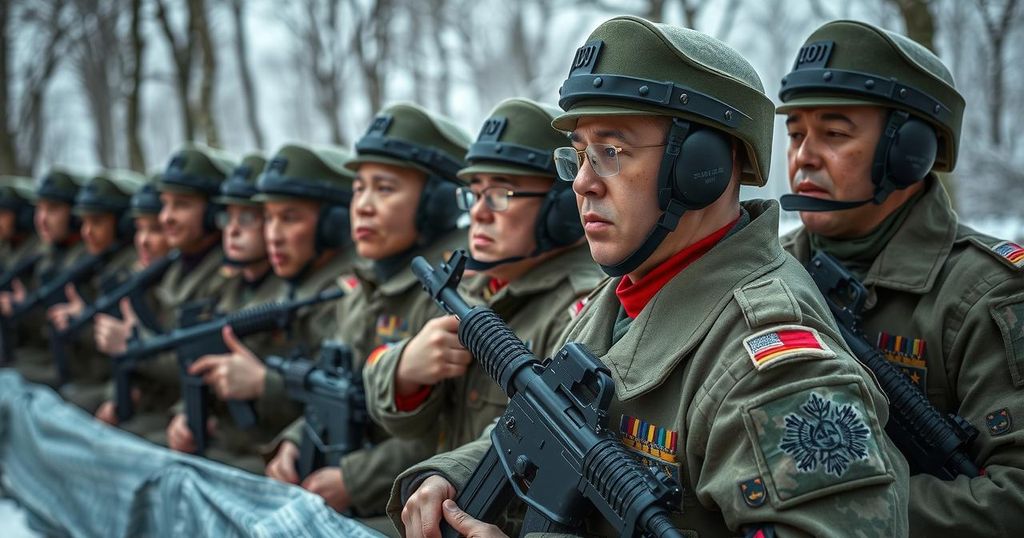Russian POWs Critique North Korean Troops as ‘Reckless’ in Ukraine Conflict
Russian POWs in Ukraine have criticized North Korean soldiers for their recklessness and lack of precision in combat, unveiling concerns about their operational effectiveness. Interrogation footage reveals that North Korean troops fired indiscriminately at drones and even at their own forces, while appearing to be better equipped and fed compared to the Russian soldiers. The revelations indicate ongoing military collaboration between North Korea and Russia amid the conflict.
Russian prisoners of war (POWs) held by Ukrainian forces have expressed significant concerns regarding the conduct and effectiveness of the North Korean troops assisting Russia in the ongoing conflict. The interrogation footage, released by RBC-Ukraine, features two Russian soldiers who described the North Koreans as displaying a lack of discipline and carelessness in their combat operations. One soldier recounted an instance where North Korean troops opened fire on approaching Russian forces as well as their own personnel, labeling them as “headless” and “insane.”
Furthermore, the soldiers noted that North Korean troops appear to engage in indiscriminate firing, showcasing a reckless approach to targeting, particularly against aerial drones. “To be honest, the farther away from the Koreans, the calmer it is… They shoot at … anything that flies. It doesn’t matter if it’s a Russian or Ukrainian (drone),” stated one soldier, indicating the chaotic conditions surrounding their deployment. Additionally, the POWs remarked on the apparent superiority of the North Koreans in terms of equipment and sustenance, highlighting that these troops enjoyed better provisions than the Russian soldiers, who often had to subsist on minimal rations such as buckwheat porridge while their North Korean counterparts had access to more substantial meals.
This footage, if verified, further substantiates claims that North Korea is providing military support to Russia in its conflict with Ukraine—a collaboration that both nations have not officially acknowledged.
Overall, the video evidence reveals a disconcerting view of the North Korean military presence in Ukraine, drawing attention to issues of military discipline and operational effectiveness that could affect the broader dynamics of the war.
The ongoing conflict in Ukraine has seen increasing international involvement, with various nations reportedly providing support to either side. North Korea’s involvement alongside Russia presents a complex geopolitical scenario, particularly given the historical context of North Korea’s international relations and military engagements. As the war intensifies, reports from Russian POWs shed light on the challenges and dynamics within the collaborating forces, offering insights into the conduct and readiness of North Korean troops on the battlefield.
The testimonies of Russian POWs regarding North Korean troops underscore significant concerns about the effectiveness and discipline of these forces. The characterization of North Koreans as ‘reckless’ and indiscriminate in their actions raises critical questions about their operational capabilities. Moreover, the noted disparity in logistics and living conditions between the two groups suggests a potential imbalance within their cooperative efforts, which may impact the overall strategic objectives in the ongoing conflict between Russia and Ukraine.
Original Source: www.rfa.org




Post Comment